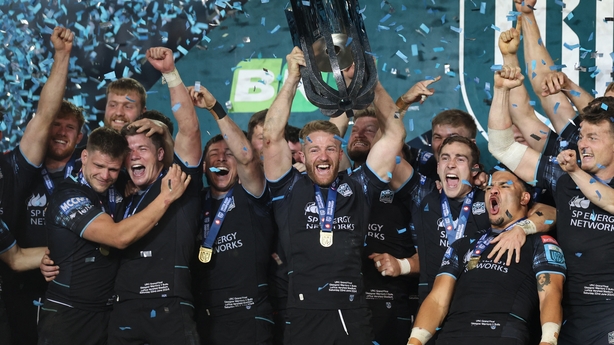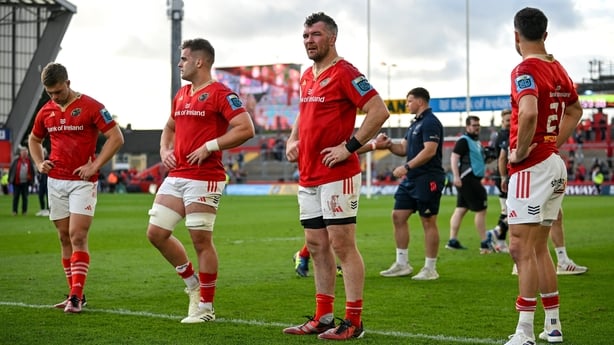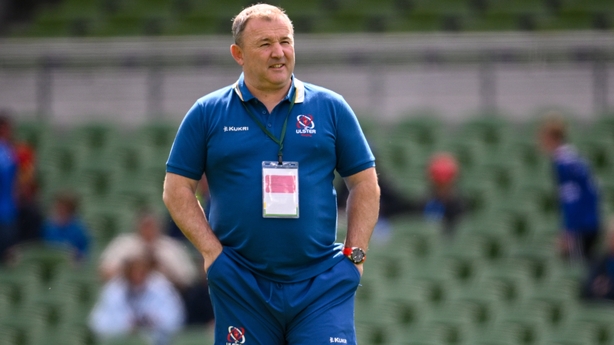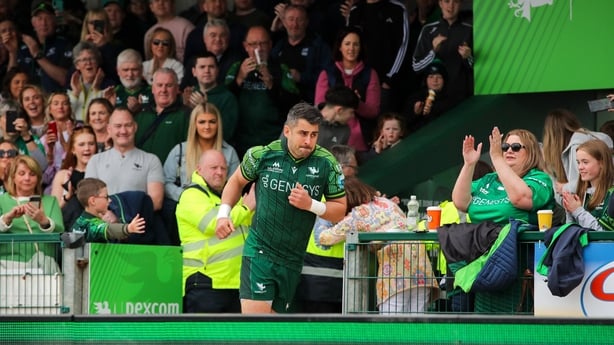It's exactly one week since the BKT United Rugby Championship issued a Friday afternoon statement, denying reports that they were in discussions with the Premiership around a new British and Irish League.
Their wording was very specific.
While they dismissed the notion of a 'British and Irish League’, there was a conspicuous absence of any reference to a full merger between both the URC and Premiership.
It’s believed the IRFU are open to a merger, but only if the South African and Italian sides are brought along with them. Either way, with the involvement of CVC Capital Partners in both leagues, as well as the Six Nations, this story is certain to run further.
The current iteration of the United Rugby Championship is only three seasons old, so last week’s reports of yet another change to the club game’s structure brought with it a weary sigh.
Talks of mergers and acquisitions and rebrands have been a constant theme over the 24 seasons since the first Celtic League, but crucially, this time it’s because the formula is working.
It was notable that last week’s kite-flying predominantly came from the English press. With the folding of Wasps, Worcester and London Irish in recent years, the Premiership is now working as just a ten-team league which hasn’t seen relegation for three years.
The product itself is good, but revenue is an issue, both from TV and attendances, with clubs having lost out on extra home games since the reduction of the league to ten teams.

All the while, the URC appears to be growing in strength.
Their figures for the 2023/24 season showed a small growth in attendances (3%), but a 29% growth in TV figures watching the league, and although the money coming into the league via TV is still dwarfed by that of the French league, there has been encouraging growth. Content producers will also tell you that the insatiable appetite for rugby of the South African audience has been welcomed.
The main reason the tournament organisers will have been rubbing their hands together with glee across these three seasons is the competitive nature of the league.
The old Pro14 was becoming a procession for Leinster, who won four league titles in a row with relative ease, but the first three URC seasons have produced three different winners from three different countries, and four different teams competing in those deciders.
And in a reversal from the days where away play-off wins were a rarity, Munster and Glasgow have gone away from home in both the semis and finals of the last two seasons to win the trophy.
Having gone three years without winning silverware, the focus is very much on Leinster in 2024/25. Frustratingly for Leo Cullen’s side, each of those three seasons has followed a similar pattern as they cruise their way through the regular season, before being humbled in the semi-final, with defeats to the Bulls bookmarking a 2023 defeat to Munster.
Their determination to add a fifth Investec Champions Cup trophy to their cabinet has come at the expense of URC form, but hasn’t yielded silverware. Their most recent URC campaign started to unravel in April when they brought a shadow squad to Johannesburg and Cape Town in between their Champions Cup quarter and semi-finals, and three defeats in their final five regular season games left them travelling to South Africa for the semi-final, where they were humbled by the Bulls.
The big-money additions of RG Snyman, Jordie Barrett (from December) and Rabah Slimani have only heightened the pressure on the province this season. The only thing that will excuse them not winning the URC next summer would be if they get their hands on a Champions Cup instead.

For Munster, this season’s goal is consistency, and hopefully a quieter rehab room. Graham Rowntree delivered a URC title in his first season when nobody thought it was possible, but when they were expected to deliver again last season, they ran out of steam when a home final was in their control.
So much of their hopes rest on being able to get their best team on the pitch. In each of the last two seasons, the province have endured an injury crisis so deep they’ve had to resort to short-term signings. It’s no surprise that they looked at their best last season in the final weeks of the regular season when Rowntree was able to pick something resembling his first-choice squad.
Having been among the favourites in recent seasons, those days appear to be behind Ulster for the time being at least. A chaotic campaign in which they parted with their head coach and CEO mid-way through the season was matched by financial stress, leading to a downsized budget and squad this year.

A strong finish to the season under interim head coach Richie Murphy (below) led to the former Ireland U20 coach being given a two-year deal, and his addition of young talent is a sign that the province’s focus is now long-term growth rather than short-term success. An uneventful season with Champions Cup qualification and play-off rugby would signal a decent first full season.
Similarly, there is a clear shift towards youth in the west of Ireland, but unlike Murphy at Ulster, Connacht boss Pete Wilkins needs to show something more this season.
Having won four of their first five games in 2023/24, an 11th place finish was a disappointing return for the province, who missed out on both the play-offs and Champions Cup qualification.
There have been big changes in the squad, with more than 700 games of experience either retiring or moving away last summer, while head coach Wilkins has reportedly taken more control over what was a generous defence last season.
Cian Prendergast’s appointment as captain, and the promotion of Matthew Devine and Hugh Gavin to the senior squad is an indication of how Wilkins is looking to pass more responsibility on to the younger core of this team.

Pre-season results and performances show a side that are gearing themselves for a fast start, even with three Interpros and a meeting with the Sharks ahead of them in the opening five weeks.
The fixtures are never kind to Connacht, and that’s one major flaw in the league’s format. In an 18-game regular season, each team plays one another once, with the remaining three fixtures coming against sides in your own country or ‘Shield’. In Connacht’s case, that’s three more games against Leinster, Ulster and Munster, while Glasgow - for example - face Edinburgh, Benetton and Zebre for a second time.
There are other challenges facing the league; the standard and consistency of refereeing across the board has been a regular discussion, while Welsh regional rugby still appears to be falling without reaching its floor.
All things considered though, the URC appears to be in rude health, with a lot of room to get even better.
Listen to the RTÉ Rugby podcast on Apple Podcasts, Spotify or wherever you get your podcasts.
Watch Munster v Connacht in the URC on Saturday from 5pm on RTÉ2 and RTÉ Player. Follow a live blog on RTÉ.ie/sport and the RTÉ News app and listen to Saturday Sport on RTÉ Radio 1


